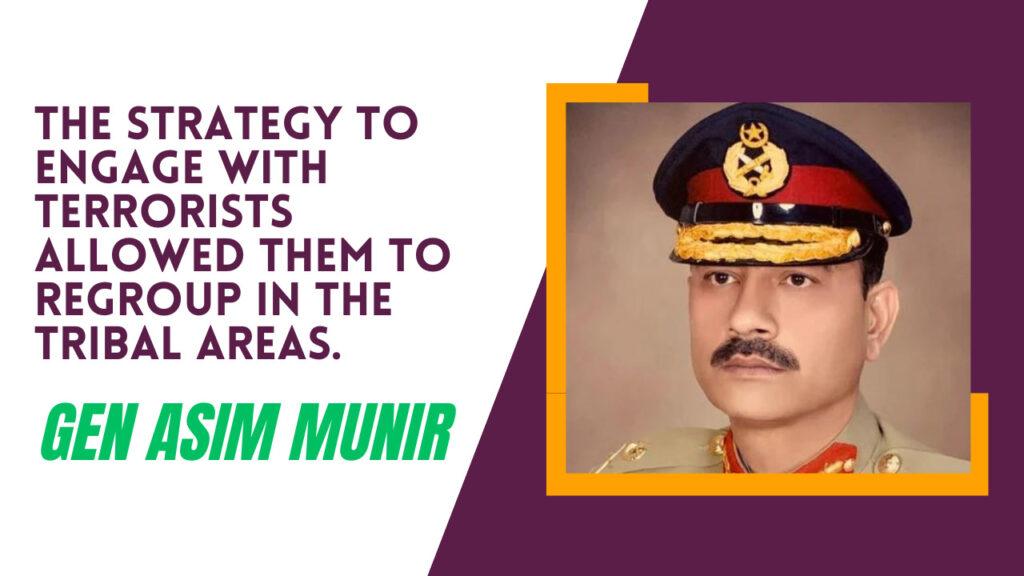Pakistan’s Army Chief General Syed Asim Munir told members of the National Assembly in a briefing on Friday that a strategy to talk to terrorists let them regroup in the tribal areas. This was before the country’s political and military leaders agreed to revisit the anti-terrorism plan again.
It is to be noted that the former prime minister and PTI chief Imran Khan still defends and supports his idea of resettling militants returning from Afghanistan. Gen Munir was apparently referring to the policy devised and followed by the military and political leadership under the PTI regime, following the Taliban takeover of Afghanistan in August 2021.
After MPs raised grave concerns about the rebirth of terrorist groups, Friday’s in-camera meeting was informed that a three-pronged approach — deter, dialogue, and development — to root out terrorism was already underway, marking a marked departure from the policy of the previous administration.
The agreement was reached after the military leadership examined recent terrorist attacks that occurred throughout the nation and provided information about the security forces’ initiatives to combat terrorism, preserve internal security, and protect Pakistan from external threats.
The army’s anti-terror operations in Balochistan, Khyber Pakhtunkhwa, Punjab, Gilgit-Baltistan, and other regions of the nation were updated during the two-hour in-camera briefing.
During the briefing, Gen Munir also apprised parliamentarians about plans of the banned Tehreek-i-Taliban Pakistan (TTP) and security forces’ endeavors to counter them.
The director general of Inter-Services Intelligence, Lt Gen Nadeem Anjum in his briefing apprised lawmakers about the connivance of hostile intelligence agencies with terrorist groups.
Sources said the army chief stressed the need for revisiting the anti-terrorism action plan and suggested a multi-dimensional or ‘3-D’ strategy.
After the Army Public School attack on Dec 16, 2014, a national consensus was evolved leading to a 20-point National Action Plan (NAP) for countering terrorism and extremism which was approved by parliament. NAP spelled out the specifics of the counterterrorism drive in the country.
The Army Chief dispelled the impression of waging a full-scale anti-terror operation in the tribal areas and suggested the ‘deter, dialogue and development’ plan to neutralize the terrorists.
According to the army chief, the ‘3-D’ plan is not a novel idea because it is consistent with state policy. He suggested including all stakeholders in this strategy such as security forces, legal fraternity, civil society, politicians, social workers, bureaucracy, diplomats, and media. Gen Munir claimed that security forces had cleared all ‘no-go areas’ in Pakistan and 80,000 personnel had made sacrifices for this cause. He further said that the terrorists were left with no option but to accept the writ of the state.
Sources quoted PM Shehbaz as saying that the previous government had wasted the anti-terror efforts and subsequently terrorism returned to the country.


